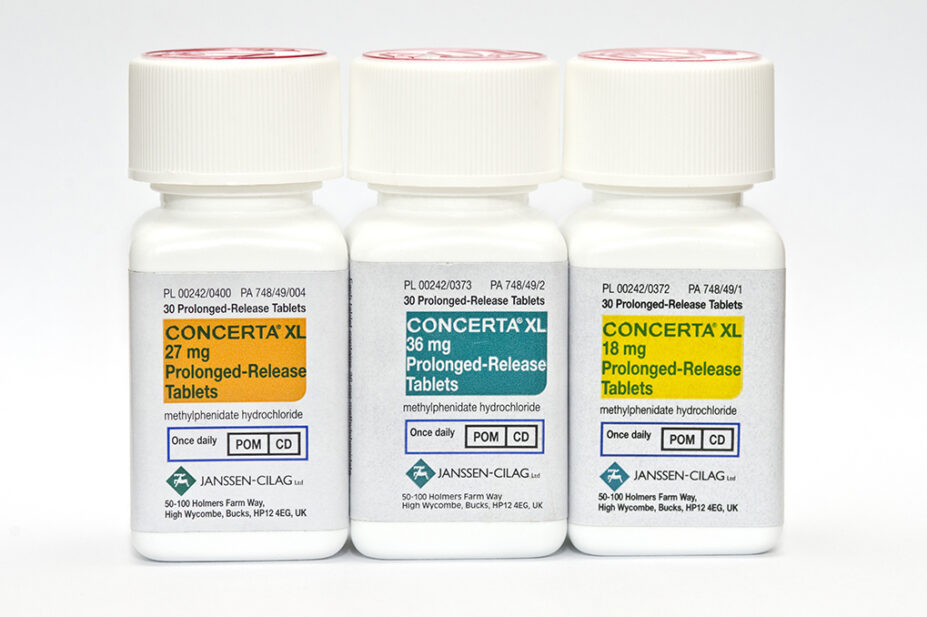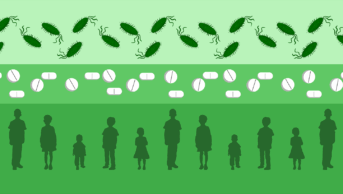
DR P. MARAZZI / SCIENCE PHOTO LIBRARY
Prescribing of central nervous system stimulants and medication for the treatment of attention-deficit hyperactivity disorder (ADHD) increased by almost 70% over the past five years, latest data from the NHS Business Services Authority have shown.
In addition, the figures also reveal that the number of patients prescribed these medicines increased by almost 85% over the same time period.
The ‘Medicines used in mental health‘ report, published on 9 March 2023, covers five types of mental health medication prescribed in England and dispensed in the community. Medication types include antidepressants; hypnotics and anxiolytics; antipsychotics; central nervous system stimulants; and ADHD and dementia medication.
Overall, the figures for October 2022 to December 2022 showed a continuation of the long-term trend for prescribing of antidepressant items in England, increasing to 21.7 million items, 2.7% more than the same time in 2021, and a 25% rise since 2017/2018, when 17.4 million items were prescribed.
Antipsychotics and drugs for dementia, such as risperidone and donepezil hydrochloride, respectively, also showed small increases in prescribing, with antipsychotic items increasing overall by 1.2% between 2021 and 2022 to 3.38 million items, and dementia drug items increasing by 3.8% to 4.19 million items.
In contrast, prescribing of hypnotics and anxiolytics, such as zopiclone and diazepam, continued to decrease.
However, central nervous system stimulants and ADHD medicines, such as lisdexamfetamine dimesylate, showed the largest percentage change of all the five medication groups, with an increase of 6% to 650,000 items between October 2022 and December 2022.
The data also show there had been a 69.1% increase in the number of central nervous system stimulants and drug items for ADHD since the same quarter in 2017/2018, with an estimated 264,000 more items prescribed.
An estimated 180,000 identified patients were prescribed at least one central nervous system stimulant and ADHD medication in October 2022 to December 2022; a “noticeable increase” from 170,000 in the previous three months, and from 149,000 in October 2021 to December 2021, the report said.
“There has been an overall rise of 82,600 identified patients since October to December 2017, an 84.8% increase,” the report continued.
However, Tony Lloyd, chief executive of the ADHD Foundation, said a rise in medication prescriptions was a “very weak data set” when talking about ADHD, which he said was substantially underdiagnosed and untreated in the UK.
“Over 8 million people in the UK are using antidepressants, only approximately 176,000 adults are on ADHD medicines; this represents a fraction of the estimated [more than] 1.5 million adults in the UK with ADHD,” he explained.
“The impact of the pandemic has increased demand for information about ADHD, as many of those undiagnosed, who were managing their ADHD successfully, struggled because their self-care regimen of routines, structures, daily exercise, workplace support and healthy lifestyles were disrupted by lockdown constraints.”
However, managing ADHD was “not simply about medication”, Lloyd said.
“The majority of adults choose not to use medication; many believe they do not need to use medication in adulthood as they are able to choose a career and lifestyle that plays to their cognitive strengths,” he added.
1 comment
You must be logged in to post a comment.



Great news! ADHD is underdiagnosed and Tony Lloyd is absolutely right.